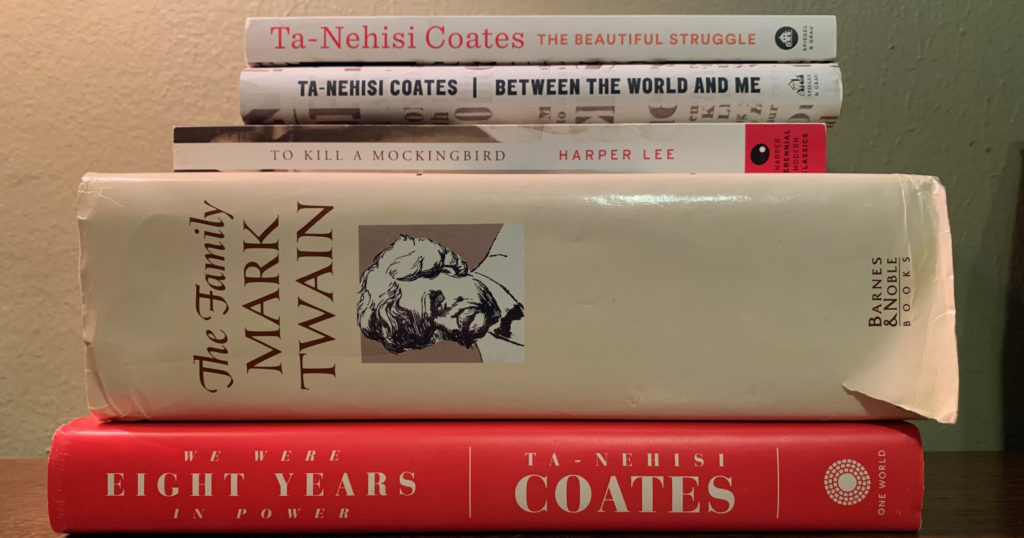
[The third RSA paper]
It wasn’t particularly hard to predict that mask-wearing would become a point of contention—considering that our culture of demagoguery weaponizes choices as small as the color of a tie, and that Trump was insistent on associating mask-wearing with weakness. What was somewhat surprising was that the issue wasn’t completely factionalized—that is, mask-wearing became a controversy in communities we don’t necessarily associate with Trump or the Republican Party, such as the wellness community.
In the abstract for this talk, I said that mask wearing was politicized, but that’s wrong—it was depoliticized, in the sense that it was removed from the realm of policy deliberation, and became a performance of in-group identity. There were a lot of factors that contributed to that outcome, but one especially popular explanation is that too many people rejected the advice of experts, instead relying on media pundits, youtube celebrities, or their own strong convictions. I think that explanation is inaccurate and unhelpful; in fact, I’m going to argue that it’s grounded in a way of thinking about knowledge, discourse, and authority that is the source of the problem.
On the contrary, I think the problem was too many people—not necessarily from just one place on the political spectrum—approached the issue from the perspective of what I’ve awkwardly termed “authoritarian libertarianism.” I’m not wed to the term, but also not wild about some of the other available terms.
This paper has two parts—for most of it, I’ll explain what I mean by authoritarian libertarianism, and then I’ll explain why I don’t think it’s usefully characterized as either anti-intellectualism or a kind of populism.
Authoritarian libertarianism uses a rhetoric of freedom and liberty to advocate and enforce policies of control, forcing everyone to abide by what in-group authorities determine is correct behavior and belief. I don’t think the rhetoric is necessarily insincere. My favorite example of authoritarian libertarianism is how the Massachusetts Bay Colony defended its practice of punishing, expelling, and sometimes hanging dissenters as consistent with the “freedom of conscience” guaranteed in its charter. John Cotton’s 300-page The Bloudy Tenent, Washed and Made White in the Bloud of the Lambe (1647), for instance, argued that forcing a person to do what Cotton believed right was not a violation of their conscience, but was allowing them to follow their conscience.
The assumption that he and others made is that there is not really any disagreement about what is right or wrong—a person might be momentarily mistaken (“in error” he says) but will recognize their belief as wrong as soon as they are told so by an authority. If they “persist” in error, they are persisting in doing something even they know to be wrong. (1 Timothy 5:20 is usually the proof-text cited: “As for those who persist in sin, rebuke them in the presence of all, so that the rest may stand in fear.”) As long as someone persists in error, they can be forcibly silenced. Freedom of conscience, for Massachusetts Bay authorities like Cotton, was the freedom to submit to their authority.
This isn’t a disagreement about freedom, but about knowledge—authoritarian libertarianism presumes that determining what’s right is straightforward. And here we get entangled in popular understandings of authority and expertise. As Johanna Hartelius has shown, the expert/expertise connection is complicated and varied, and shouldn’t be seen as question of identity, but of relation. Expertise is not an object or epistemic quality experts autonomously posess, but, as she says, “a social and symbolic process, a relational logic at once real and imagined, theoretical and pragmatic” (164). If you accept her argument, and I think it’s a good one, then being an expert and being right are not synonymous—people, including experts, might be mistaken. If, however, you listen to a lot of popular discourse, the assumption for many—not everyone—is that an expert is right, and the right person is the expert. The term “expert” isn’t always used; sometime “authority” or “prophet” might be the preferred term.
Many people explain the controversy over masks in a simple binary of right and wrong—people refused to listen to what authorities said, and instead relied on amateurs. This explanation is often associated with the narrative of fall—there was a time when people listened to authorities and we no longer do. I think this is wrong on both counts. People who refused to wear masks did listen to authorities—they assessed authority differently. To give just one example: some people believe that God is a micromanager, and so that every thing that happens is because he is willing it in that moment. For them, covid is a religious—not medical—issue. So, for them, the relevant expertise is not epidemiology but prophecy.
I’m not saying looking at covid that way is just as valid as seeing it as a public health issue (it isn’t), but I am saying that telling them to listen to experts isn’t an effective rhetorical or deliberative strategy. They believe they are.
And, really, expert discourse doesn’t have an unblemished history when it comes to decision making. Eugenics was the mainstream discourse of experts who had all the right degrees, and it legitimated forced sterilization, segregation, racist immigration policies, criminalizing inter-racial marriage (Jackson). When I point that out to people who tell me that the problem is that people no longer defer to authorities, they say that the people advocating racialist science weren’t real authorities because they were wrong (i.e., no true Scotsman).
The notion that we should simply do what experts say—Cotton’s argument—denies that experts disagree, and that any major policy decision requires people with wildly different areas of expertise (in the case of masks, constitutional law specialists, epidemiologists, historians, communication scholars, public health scholars). It also denies that coming to the optimal policy doesn’t mean doing The Right Thing, but deliberating about options. And there were and are rarely two.
The fantasy that many people have is that reliable expertise is an identity issue—the “autonomous” model of authority (Hartelius). People believe that we can assess reliability instantly, or with some quick checks of credentials. The Stanford Project on “Evaluating Information” shows that students, even with good instructions to do otherwise, try to assess the credibility of an argument without going “beyond the site itself” (Wineburg et al. 5). Students believe they can assess the reliability of an argument on the basis of whether it looks true, is easy to understand, has statistics (McGrew et al. 4-5).
Checklists—much like the ones we give students in classes—may make the situation worse, because they encourage students to try to assess an argument autonomously. I don’t mean that in the way that Hartelius uses the term, but in the sense used by advocates of New Criticism; that is, treating a text as an autonomous mobile floating in space. McGrew et al. show that, not only is this how many students assess credibility, because it’s what checklists advocate, but so do many professors:
“College students and even professors approached websites using checklist-like behaviors: they scanned up and down pages, they commented on site design and fancy logos, they noted “.org” domain names, and they examined references at the bottom of a web article. They often spent a great deal of time reading the article, evaluating the information presented, checking its internal logic, or comparing what they read to what they already knew. But the “close reading” of a digital source, the slow, careful, methodical review of text online—when one doesn’t even know if the source can be trusted (or is what it says it is)—proves to be a colossal waste of time.” (8)
Achen and Bartels’ research similarly shows that beliefs are partisan, and that we tend to assess information through partisan lenses—regardless of how well-educated we are, or how much we think we are logical—in conditions when asked to treat an argument autonomously. The subjects for their studies included faculty—this is not something only They do. Ryan Skinnell, using a more nuanced reading of “logos” than is in many textbooks (it is not the same as what we call “logic”), points out that an argument can seem perfectly “logical” simply because we agree with the major and minor premises:
“If you accept the stated premise (children are being held as sex slaves in the basement of a pizza parlor), as well as an unstated premise (it is reasonable for an individual to take up arms to confront what they believe is injustice), then the logic of the argument is perfectly reasonable—even eminently moral.” (561)
Assessing arguments as though they were autonomous mobiles in space, and as though expertise is autonomously determined, keeps us free to believe what we already believe.
I’m not using the term “authoritarian” in the sense that Bob Altemyer or the Frankfurt School use it—as an ideology—nor to refer to a kind of regime (as political scientists sometimes use the term). I mean authoritarian as a model of public discourse. Experts—real experts—speak the truth; and normal people (those whose perception isn’t blinded by bias) recognize what they’re saying as true. Thus, credible authorities are always in-group, and always confirming and conforming to in-group beliefs. People who rejected the expertise of epidemiologists believed that scholars with degrees from impressive places who were repeating the major scholarly consenses were only really experts if they were in-group.
This way of thinking about truth, authority, and public discourse isn’t circular as much as a Mobius strip. We should do what authorities say because they speak the Truth; we know they’re speaking the Truth because they’re authorities, and we know they’re authorities because what they’re saying is True. True statements about the world are true on their face, and while the explanation for why they’re true might be complicated (as in some conspiracy theories) there is still the instant resonance that signals Truth. Thus, deliberation is not only unnecessary, but actively dangerous because it’s likely to confuse issues. The more voices there are in the argument, the more likely people will fall for false prophets.
Cotton exemplifies this authoritarian model of public discourse, but this view is not necessarily religious. Secular figures like Richard Dawkins or Donald Trump appeal to it; it’s popular in management literature obsessed with “decisiveness” and charismatic leadership; of course it’s part of cults, and cult-like organizations. Just as it isn’t necessarily religious, it isn’t necessarily political. At least as described in Bad Blood, Theranos was a highly authoritarian organization that described itself as a place of creativity and innovation—that is, freedom. To the extent that it’s a model of political authority and discourse, it isn’t restricted to one place on the political spectrum, nor is it evenly distributed.
But, there do tend to be political implications. Authoritarian libertarianism says that, because we can cite true authorities to support our position, we don’t have to engage in argumentation; we don’t have to deliberate with people who disagree. At its best, it says that we have moral license to disenfranchise some groups; at its worst, it says we have a moral obligation to silence them. So, as with the Massachusetts Bay Colony, communities in which authoritarian libertarianism is dominant often end up with frequent expulsions and witch hunts.
I’ve used the term “expert,” but that isn’t always the term that is used. In fact, many authoritarian libertarians believe that experts—that is, scholars whose expertise comes from deep learning and who present themselves as advocating a scholarly consensus—are blinded or confused by too much learning. For that reason, this way of thinking about discourse and decision-making is sometimes called anti-intellectualism. I’m dubious about that term, though, because many of the people who advocate authoritarian libertarianism present themselves as intellectual, and are proud of their learning. David Duke still brags about his PhD., and as Kiara Walker points out in her dissertation, Richard Spencer bragged during testimony in his recent civil trial that he’d read “quite a bit of Jacques Barzun” and “so much philosophy” (22).
This model is also sometimes called populism because the distinction between those who should be followed and those who should be rejected is so often associated with imagining that the world is broken into a hostile binary of authentic (i.e., directly connected to truth) and corrupt (both dishonest and misled). Cass Mudde defines populism as
“an ideology that considers society to be ultimately separated into two homogeneous and antagonistic groups, ‘the pure people’ versus ‘the corrupt elite’, and which argues that politics should be an expression of the volonté générale (general will) of the people” (Mudde 2004, 543, qtd. in Handbook 29).
In populism, the people v. elite is not necessarily a distinction of class or education. What distinguishes the two groups, according to Mudde, is morality. Someone might be tremendously wealthy or well-educated, and still be “of the people” because they are simply authentic people who got rich or went to school:
“The essence of the people is their purity, in the sense that they are ‘authentic,’ while the elite are corrupt, because they are not authentic. Purity and authenticity are not defined in (essentially) ethnic or racial terms, but in moral terms. It is about ‘doing the right thing,’ which means doing what is right for all the people.” (Handbook 31)
“All the people” is not an empirical claim, but a circular and essentialist one—“the people” being in-group (since they are the only people that really count).
Paul Johnson’s recent and wonderful book I the People makes an elegant case for what he calls “conservative populism,” an ideology that is similarly muckled in terms of domination, submission, and freedom. So, populism might be a better term than authoritarian libertarianism, but I’m not sure. Johnson’s book ties the authoritarianism he’s describing to conservative ideology, and what I’m awkwardly calling authoritarian libertarianism is all over the political spectrum, and often used in non-political situations.
In addition, some of the people who use this approach are openly elite, such as John Cotton or Richard Dawkins, who have fairly nasty things to say about the masses. Cults and authoritarian religions sometimes have a rhetoric of an elect, and various kinds of paternalistic organization or political structures assume an authoritarian system that frees others through control (I’m thinking of Erich Fromm’s argument in Escape from Freedom). I think we should be careful about overextending the concept of populism because it is such a useful one—if every movement is populism, then the term loses its explanatory force.
Although I think it matters what we call it, as I said, I’m not wed to the term. What seems important to me is that we recognize that there is an approach to authority and discourse that is damaging to deliberation, and to which we are all prone. (I cringe to think about how often I probably posted or shared something about what idiots people were for rejecting expertise.) Any term that invites us to see this as something They do is just repeating the same mistake.
I’m also not saying that all experts are equally reliable, and that everyone “has a right” to their own authorities. I mean we do have a right to our own authorities—what would it mean not to have a “right” to an authority?—I’m not talking about rights. I’m making a very pragmatic argument about rhetoric.
It doesn’t work to tell people that they’re wrong to ignore authorities when they think they’re paying attention to true authorities. If we describe the problem with any public policy as a binary of people who did or didn’t submitting to authority, we have a damaging model of authority. What I want to emphasize is that the whole issue of mask wearing got caught in machinery of a system that expels disagreement and deliberation in favor of a binary of us and them. And so we spent and spend a lot of time arguing about whose authorities were or are really authoritative, by which we mean who is in-group and who is out-group—to whom should we submit. And I think that was a mistake. I think that’s the wrong argument.
Achen, Christopher H. and Larry M. Bartels, Democracy for Realists: Why Elections Do Not Produce Responsive Government. Princeton, NJ: Princeton University Press, 2016. Print.
Cotton, John, and Roger Williams. The Bloudy Tenent, Washed and Made White in the Bloud of the Lambe … Wherein the Great Questions of This Present Time Are Handled, Viz. How Farre Liberty of Conscience Ought to Be Given to Those That Truly Feare God? And How Farre Restrained to Turbulen by John Cotton … London: Printed by Matthew Symmons for Hannah Allen …, 1647. Web. Accessed May 16, 2022..
Hartelius, Johnann. Rhetoric of Expertise. Lanham: Lexington Books, 2022, Print.
Jackson, John P. Science for Segregation : Race, Law, and the Case Against Brown V. Board of Education. New York: New York University Press, 2005. Print.
Johnson, Paul Elliott. I the People : The Rhetoric of Conservative Populism in the United States. 1st ed. University of Alabama Press, 2022. Print.
Mcgrew, Sarah et al. “The Challenge That’s Bigger Than Fake News: Civic Reasoning in a Social Media Environment.” American educator 41.3 (2017): 4–. Print.
Mudde, Cass. “Population: An Ideational Approach.” The Oxford Handbook of Populism / Edited by Cristóbal Rovira Kaltwasser, Paul Taggart, Paulina Ochoa Espejo and Pierre Ostiguy. Oxford, United Kingdom: Oxford University Press, 2017. Print. 27-47.
Richard Spencer testimony. Sines, et al. v. Kessler, et al., 3:17CV72, 11/5/2021 https://files.integrityfirstforamerica.org/14228/1639753607-2021-nov-5-moon-sines-v-kessler-317cv72-cvl-jt-day10-final.pdf
Skinnell, Ryan. “Teaching Writing in the (New) Era of Fake News.” College composition and communication 72.4 (2021): 546–569. Print.
Wineburg, Sam, et al. Evaluating Information: The Cornerstone of Online Civic
Literacy: Executive Summary. Stanford History Education Group, 2016.







